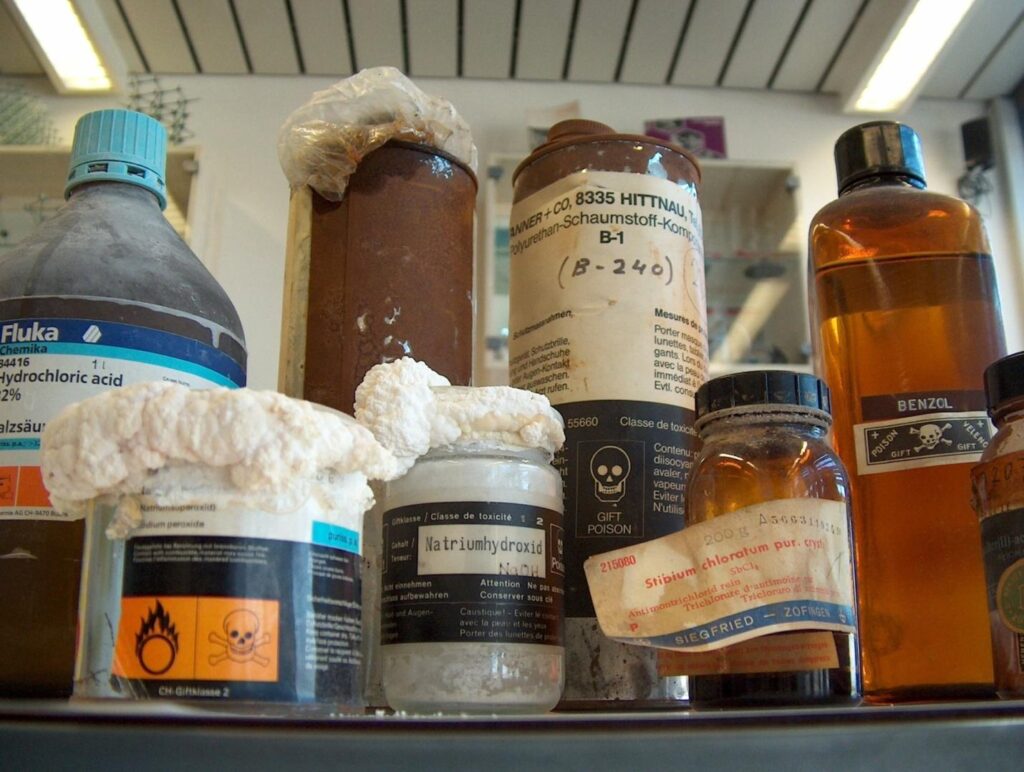In 2020 alone, there were nearly 5,000 fatal work injuries across the US.
A chemical leak is one type of workplace injury that can cause serious injury and even death. The number one key to decreasing the risk of chemical leaks and spills is preventing them from happening in the first place.
Your workplace may inevitably have to deal with potentially hazardous chemicals that can cause injury, damage, and financial losses. But with these five tips, you can seriously reduce the risk. Keep reading to learn more.
- Proper Chemical Storage to Prevent a Chemical Leak
The way you store chemicals has a big impact on their potential to spill.
First, chemicals must be in a covered area where they’re not exposed to the elements, especially rain. This is because rain can increase the volume of a liquid, increasing the likelihood of a spill.
Shelving is also important for chemical leak prevention. An overloaded shelf is more likely to buckle under the weight and cause a chemical spill. An overcrowded shelf can also lead to confusion when trying to locate a particular chemical.
Lastly, heavy containers should be stored nearest to the floor. This reduces the chance that they’ll be dropped when they’re being moved.
- How to Prevent Chemical Leaks With Labeling
Without proper labeling, chemicals may be inappropriately stored. And when chemicals are inappropriately stored, leaks and spills can quickly become explosions.
Proper labeling also prevents individuals from grabbing the wrong chemical. In a hurry, workers need to be able to properly identify chemicals on their shelves.
For this reason, OSHA requires that all chemical containers have labels that identify their content and include any necessary warnings. Your workplace should be using Safety Data Sheets (SDSs) to record information such as the chemical properties, uses hazards, and safety precautions of the chemical at hand.
- Prevent Chemical Leaks With Regular Inspection
Inspection is a key aspect of prevention. That goes for chemicals as well as your machines and their parts (and if it’s parts you’re after, check out Hydro Pumps Parts).
In terms of chemicals though, regular inspection means having a designated person or team regularly check chemical containers and their storage facilities. The team should check for exterior stains that may indicate a leak, signs of deformity in screw caps and closures, as well as signs of deterioration such as rust or bulges.
- Training for Chemical Leak Prevention
Proper training around the storage, labeling, and handling of chemicals is essential for the prevention of chemical leaks. Each and every employee who comes into contact with chemicals need to have precise training to reduce the risk of leaks or other safety violations.
Additional training is important as processes change. Annual training sessions act as a refresher course and everyone should participate.
Workplace Safety Is the Law
Depending on the chemicals involved, a chemical leak can have a severe health impact on the workers involved. It can also damage machinery, hurt the environment, and result in costly expenses. To avoid a chemical leak at your workplace, make sure you and all your workers know safety protocols around storage, labeling, and inspection.
Workplace safety is the law. And for more law-related articles, be sure to check out our Legal section.

